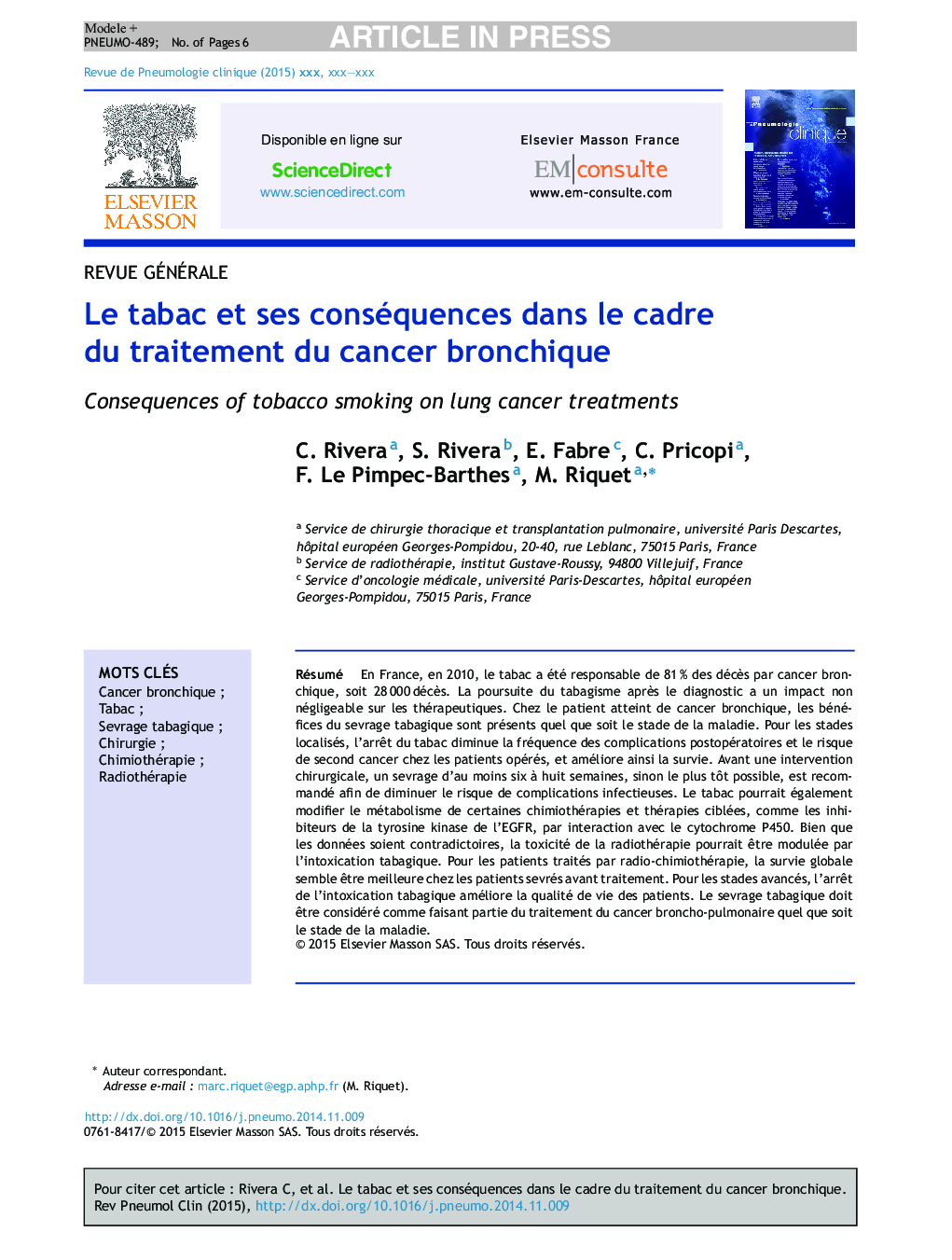| Article ID | Journal | Published Year | Pages | File Type |
|---|---|---|---|---|
| 3419313 | Revue de Pneumologie Clinique | 2016 | 6 Pages |
Abstract
In France, in 2010, tobacco induced 81% of deaths by lung cancer corresponding to about 28,000 deaths. Continued smoking after diagnosis has a significant impact on treatment. In patients with lung cancer, the benefits of smoking cessation are present at any stage of disease. For early stages, smoking cessation decreases postoperative morbidity, reduces the risk of second cancer and improves survival. Previous to surgery, smoking cessation of at least six to eight weeks or as soon as possible is recommended in order to reduce the risk of infectious complications. Tobacco could alter the metabolism of certain chemotherapies and targeted therapies, such as tyrosine kinase inhibitors of the EGF receptor, through an interaction with P450 cytochrome. Toxicity of radiations could be lower in patients with lung cancer who did not quit smoking before treatment. For patients treated by radio-chemotherapy, overall survival seems to be better in former smokers but no difference is observed in terms of recurrence-free survival. For advanced stages, smoking cessation enhances patients' quality of life. Smoking cessation should be considered as full part of lung cancer treatment whatever the stage of disease.
Keywords
Related Topics
Health Sciences
Medicine and Dentistry
Infectious Diseases
Authors
C. Rivera, S. Rivera, E. Fabre, C. Pricopi, F. Le Pimpec-Barthes, M. Riquet,
